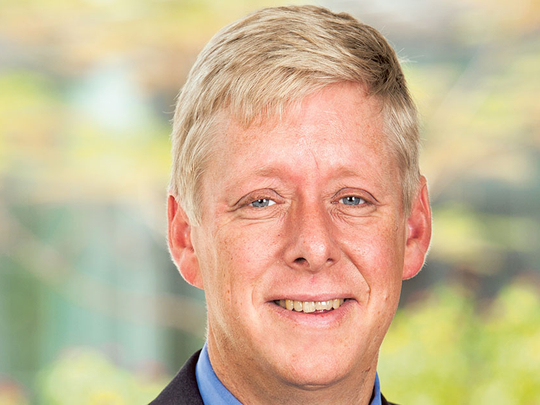
Abu Dhabi: Developing and maintaining a successful space project calls for homegrown talent and Khalifa University’s aerospace programme is looking to bolster this mission by ensuring the next generation of Emirati space enthusiasts is ready for the challenge.
The UAE has firmly set its sights on space exploration and, in July, the country announced that it would send an unmanned space probe to Mars by 2021, the first ever such endeavour by an Arab and Islamic country.
“For the UAE to lead in the future, it has to be less reliant on purchasing technology, and rather it has to actively participate in the development of technology and expertise, and this is what we want to achieve by such a programme,” said Professor Tod A. Laursen, President of Khalifa University of Science, Technology and Research.
“Our initiative will definitely help the country’s spaceflight ambitions by producing students who can contribute positively towards the project. At the end of the day, the most important asset are the people. They are more important than any of the technology that can be purchased,” he added.
Dr. Laursen told Gulf News that he expected at least two dozen students to be enrolled into the programme every year, and that the course will be expanded to include both graduate and PhD courses.
“What the students will get from this course is the knowledge on how to design vehicles for flight in space,” he explained.
“They will understand the dynamics and manoeuvrability of spacecrafts. It will be science and design they’ll learn. Essentially, they will be capable of building a spacecraft and launching it into space,” Dr. Laursen said.
The course will also teach students about satellite technology, such as how to build and design a satellite for performing specific telecommunications tasks.
Throughout, a hands-on approach will prevail, allowing students to get a real understanding of what aerospace engineering is about.
“We’re looking to get a CubeSat programme started for the undergraduates while they’re enrolled. A CubeSat is a very small satellite that is used for a number of functions like weather monitoring and communications. So what we want are student teams that will build their own CubeSat,” Dr. Laursen explained.
“This will allow for them to put things into practice and not simply stick to the theoretical. The idea is to get students involved in building the satellites, instead of relying on getting the technology from abroad, so the students will make their own technology,” he added.
The UAE’s commitment to educating future generations on spaceflight, Dr Laursen said, “is not only good for the country, it also sends a powerful message to the rest of the Arab world”.
“This is very important for the Arab world. It demonstrates that an Arab country that has aspirations to explore space, and to develop a workforce that is capable of completing this kind of project,” he said.












